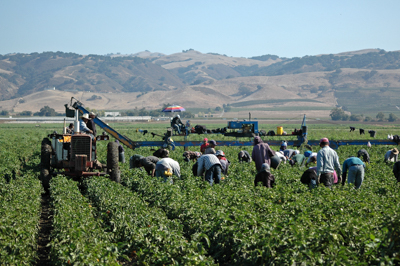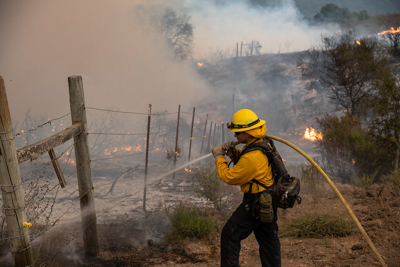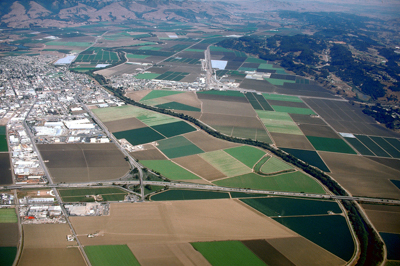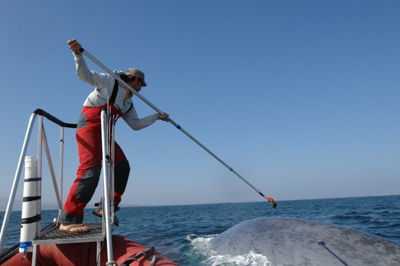California Climate Action Grants
The California State Budget Act of 2022-2023 allocated $100 million to the University of California Office of the President to invest in research that will have swift and measurable impact on climate resilience. These funds are being used to aid action-oriented solutions to address California’s climate goals and needs, ensure that local communities are prepared and resilient, and prevent future disasters. In partnership with the state, the University of California awarded more than $80 million in California Action Climate Grants to four-year academic institutions across the state. Five UC Santa Cruz projects secured a total of $9.5 million in funding through the program, and three faculty received subawards totaling more than $2 million.
The funding will support UC Santa Cruz and partners in tackling some of California’s toughest climate change challenges through innovative research and community engagement.
The Institute for Social Transformation will provide administrative support for the five projects listed below during the two-year grant period.
Project Spotlights
Politics Professor and Global Community Health Program Executive Vice Director Matt Sparke will lead a $1.99 million grant project, which help to equip California farmworker communities with new tools to address the damaging impacts of climate change on their health and livelihoods. With support from a broad contingent of 18 UC Santa Cruz faculty and partners at 10 community organizations, as well as four other universities across the state. The team will map out climate-related risk factors that disproportionately affect farmworkers and increase their vulnerability to ill-health, stress, and depression. Learn more here and view the project’s Farmworkers Health App >>
Professor of Sociology, Miriam Greenberg, will lead a roughly $1.5 million grant project to conduct a first-of-it’s kind study. The study will examine how California’s housing crisis affects the growth of the Wildland Urban Interface (WUI), where the fringes of development reach into natural areas. Development in the WUI now account for 50% of all new housing in the state, but the proximity to fire-prone landscapes and remoteness from emergency response services increases the risk from climate related natural disasters. The project will focus on California’s Central Coast, one of the most unaffordable housing markets in the U.S. Learn more >>
A team led by Hydrogeologist and Earth and Planetary Sciences Professor Andrew Fisher received a $1.99 million grant to determine how a state and federally-funded levee setback project along the Pajaro River could work with natural hydrologic processes. The new research will support the Pajaro River Flood Management Project and reshape about 15 miles of levees. Fischer’s project hopes to provide future improvements to maintenance and management of flood control areas and provide ecosystem, water quality, and water supply benefits. Learn more >>
A team of researchers led by Elliot Campbell, an Environmental Studies Professor and Gliessman Presidential Chair in Water resources and Food Sustainability, won a $1.99 million grant to study implementation strategies for California’s plan to reduce methane emissions by diverting 75% of organic waste from landfills by 2005. California’s state-wide methane mandate has prompted unprecedented action that could become a model for other parts of the country and the world. This project could potentially offer a host of benefits in agricultural lands where compost might be applied. This includes but is not limited to drought tolerance from increased soil moisture, enhanced carbon sequestration, and perhaps even reduced runoff of nutrient pollutants. Learn more >>
Rachel Nelson, Director of UCSC Institute of the Arts and Sciences, is teaming up with Ocean Sciences Professor Ari Friedlaender on a $2 million grant project. Nelson and Friedlaender are planning to develop a research-based traveling art expedition that will connect climate change impacts on whales and other marine animals in the Monterey Bay. The project ultimately aims to improve understanding and problem solving around climate change in a way that addresses inequities in impacts. Learn more >>







